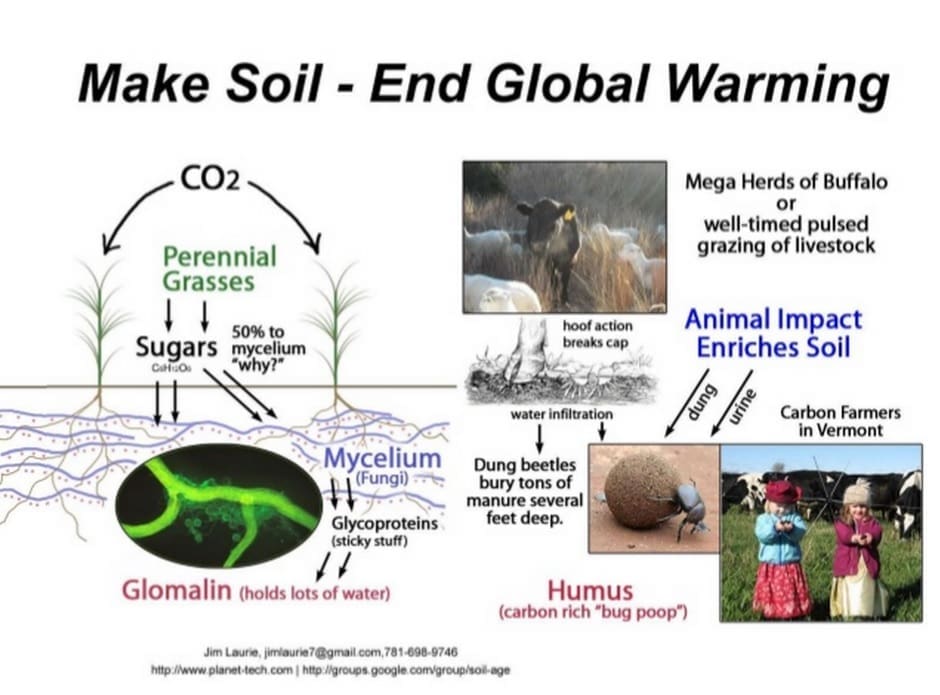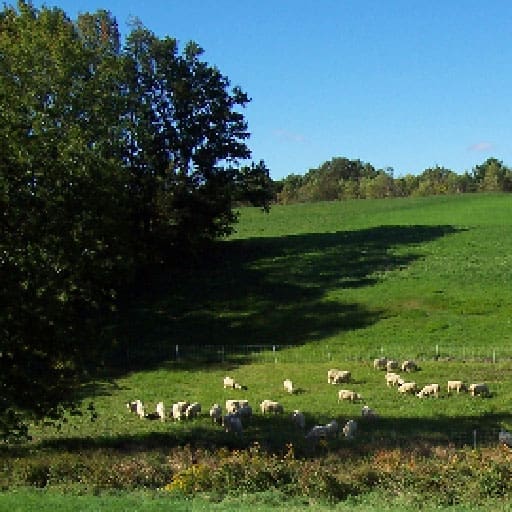To pull carbon out of the atmosphere and sequester it in soils, we need to restore biodiversity: that’s the foundation of the whole show. One of the most important visible elements from the perspective of ecosystems is to cover bare ground. Bare ground doesn’t absorb water, it breaks the water cycle, it interferes with the moderating effects of moisture on planetary temperature, it kills soil life, it fails to create carbon storing molecules created by green plants, fungi and microbes. This is less obvious in the relatively wet northeast than in the dry west, but still a real problem here.
Our primary equivalent of bare ground is impermeable surfaces; lawns, a relative biological wasteland, are a close second. So one thing we can actually do here is replace lawns with deep-rooted grasses (what Jackson Madnick tries to with Pearl’s Premium), or even better a biodiverse self-maintaining selection of indigenous and compatible plants. We can promote backyard animals such as chickens and goats, using local manure locally. We can process fall leaves onsite rather than send nutrients elsewhere. We can encourage onsite human waste processing (composting toilets) and work towards eliminating a senseless and totally unsustainable sewage system. We can promote more local food production so New England can once again feed itself. We can depave all but the most essential surfaces (like the bike path!). We can restore brownfields and ruined pastures. We can outlaw unnecessary, noisy and polluting power lawn-care machines. And of course we can educate, organize, and mobilize on a path that’s parallel to but very different from emissions reductions, as well as support grassroots eco-restoration worldwide.
Mostly this is about changing a cultural mindset. That’s one of the problems with the alternative energy approach – it just substitutes one element of an unsustainable lifestyle with something perhaps slightly sustainable, at its essence changing little overall.
The bottom line is that we’re in the throes of the big emergency now, not somewhere down the road. It’s unpleasant to hear that, but as the climate crisis grows more urgent I think we need step up to the actual reality and leave the wishful thinking of political “reality” behind.


